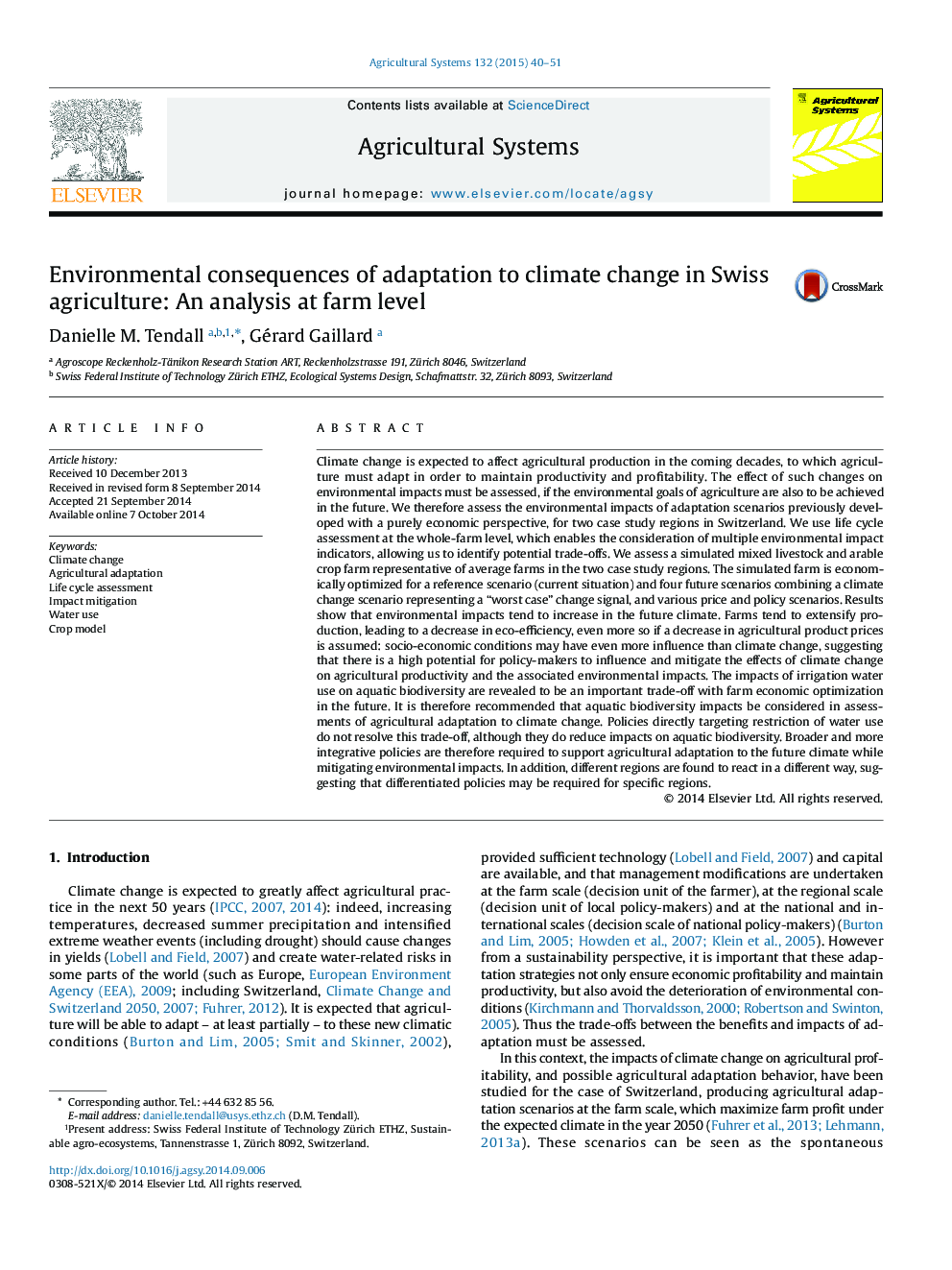| Article ID | Journal | Published Year | Pages | File Type |
|---|---|---|---|---|
| 6368585 | Agricultural Systems | 2015 | 12 Pages |
â¢Environmental impacts of farms in Switzerland expected to increase in future climate.â¢Economic adaptation of farms only partly mitigates contribution to climate change.â¢Impact on aquatic ecosystems is the major environmental trade-off of adaptation.â¢Policies targeting water use restriction are insufficient to resolve this trade-off.â¢Impact mitigation requires broader integrative policies tailored to specific regions.
Climate change is expected to affect agricultural production in the coming decades, to which agriculture must adapt in order to maintain productivity and profitability. The effect of such changes on environmental impacts must be assessed, if the environmental goals of agriculture are also to be achieved in the future. We therefore assess the environmental impacts of adaptation scenarios previously developed with a purely economic perspective, for two case study regions in Switzerland. We use life cycle assessment at the whole-farm level, which enables the consideration of multiple environmental impact indicators, allowing us to identify potential trade-offs. We assess a simulated mixed livestock and arable crop farm representative of average farms in the two case study regions. The simulated farm is economically optimized for a reference scenario (current situation) and four future scenarios combining a climate change scenario representing a “worst case” change signal, and various price and policy scenarios. Results show that environmental impacts tend to increase in the future climate. Farms tend to extensify production, leading to a decrease in eco-efficiency, even more so if a decrease in agricultural product prices is assumed: socio-economic conditions may have even more influence than climate change, suggesting that there is a high potential for policy-makers to influence and mitigate the effects of climate change on agricultural productivity and the associated environmental impacts. The impacts of irrigation water use on aquatic biodiversity are revealed to be an important trade-off with farm economic optimization in the future. It is therefore recommended that aquatic biodiversity impacts be considered in assessments of agricultural adaptation to climate change. Policies directly targeting restriction of water use do not resolve this trade-off, although they do reduce impacts on aquatic biodiversity. Broader and more integrative policies are therefore required to support agricultural adaptation to the future climate while mitigating environmental impacts. In addition, different regions are found to react in a different way, suggesting that differentiated policies may be required for specific regions.
